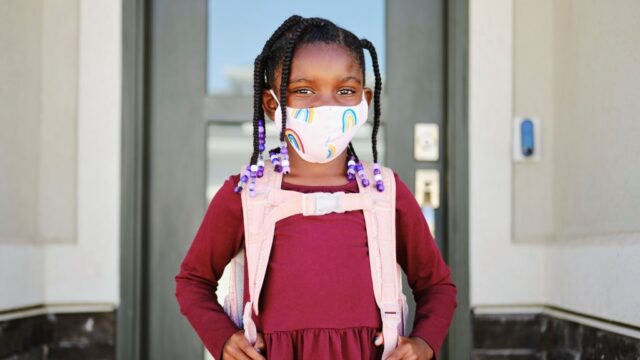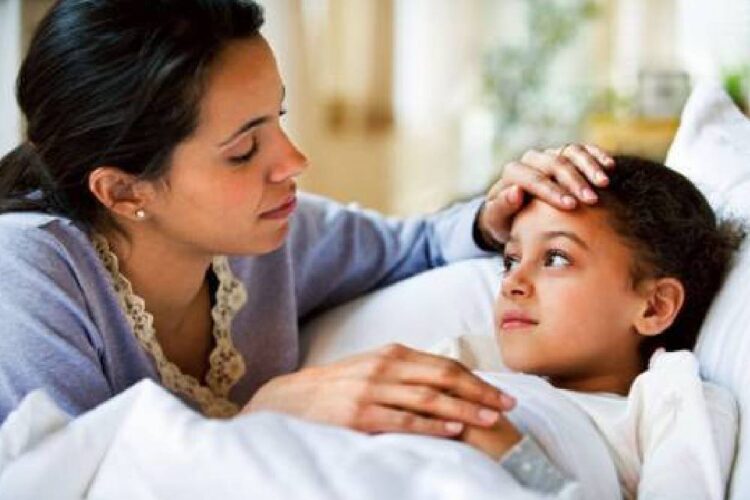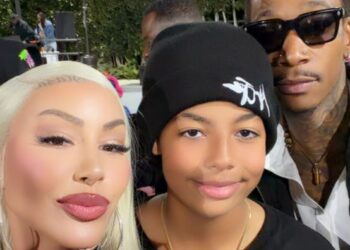Many are being affected by the Covid-19 Delta variant. And unfortunately, a great number of those are children. With children returning to school, many parents have a lot of questions. In an exclusive interview with Parents.com, the U.S. Surgeon General talks about about COVID-19 vaccines for kids, breakthrough infections with the Delta variant, staying safe in school, and more. So, do you have questions about COVID and kids? The U.S. Surgeon General has answers!
Take a look at a snippet of his interview below.

COVID-19 vaccines are currently approved for everyone 12 and older, and pediatric clinical trials are underway for younger kids. When might children under 12 get the go-ahead for vaccination?
It’s hard to pinpoint exactly when COVID-19 vaccines might be approved for children, but Dr. Murthy says it could possibly happen by the end of the calendar year. After pediatric trials end, drug manufacturers must analyze the data. Then they can submit an application to the Food and Drug Administration (FDA) for emergency use authorization. “The FDA will work very quickly to evaluate those proposals,” says Dr. Murthy. “They’ll do it thoroughly and they won’t cut any corners, but they will prioritize it. The COVID-19 vaccines are their highest priority. Especially when it comes to our kids, we want to make sure we do everything we can to protect them.”
Pfizer, Moderna, and Johnson & Johnson are currently approved under emergency use authorization. When might these vaccines receive full FDA approval?
Dr. Murthy predicts the FDA will have an update sometime in the near future. “I can’t give you an exact date, because that is something the FDA alone knows,” he says. “Vaccines for COVID-19 are the top priority for the FDA, so they’re working hard on it.” The good news is that experts have plenty of experience with COVID-19 vaccines, and this could help streamline the approval process. “We’ve actually administered over 350 million doses of the vaccine in the United States alone, and millions more around the world,” he says.

California just required teachers to be vaccinated against COVID-19 (or get tested regularly). Could vaccines become federally mandated for teachers? Dr. Murthy doesn’t believe we’ll see federal vaccine mandates for educators in the near future. However, these mandates may happen on a local or state level, like in California. “I think it’s very understandable that you see localities and states moving in this direction,” he says. “First and foremost, what they’re trying to do is create a safe environment for our kids. They want to make sure those who are young and don’t have the opportunity to get vaccinated yet will be exposed to as little virus as possible, so their chances of staying healthy are high.” Along those lines, a federal mask mandate is also unlikely. School districts, cities, and states generally make their own guidelines for students and staff.
Could schools mandate COVID-19 vaccination for students, once they’re approved for pediatric use?
It’s actually a common practice for localities to require vaccinations. Many schools already mandate vaccines like MMR, varicella, and DTaP. And while Dr. Murthy doesn’t believe the federal government will mandate COVID-19 vaccines for students, he says it could happen at the state or local level.

Are schools required to report positive COVID-19 cases? Do protocols exist for this scenario?
While COVID-19 protocols vary by state, “we certainly want schools to be reporting the infections they have and working with their local health departments,” says Dr. Murthy. “Testing is our vision. It’s what allows us to see what’s happening.” By sharing COVID-19 testing results, communities are better able to build strategies and acquire necessary resources to fight COVID-19. “When we have a cluster of cases that develop a community, it’s not just a problem for the people who get sick. It’s a problem for the broader community, especially with the highly contagious variant,” says Dr. Murthy.
To read the remainder of Dr. Murthy’s Q&A, click here. Remember, the U.S. Delta is nearly twice as contagious as previous Coronavirus strains. Some studies also suggest that it causes more severe illness. If you have concerns about COVID-19 and your child, contact your health care professional immediately.







